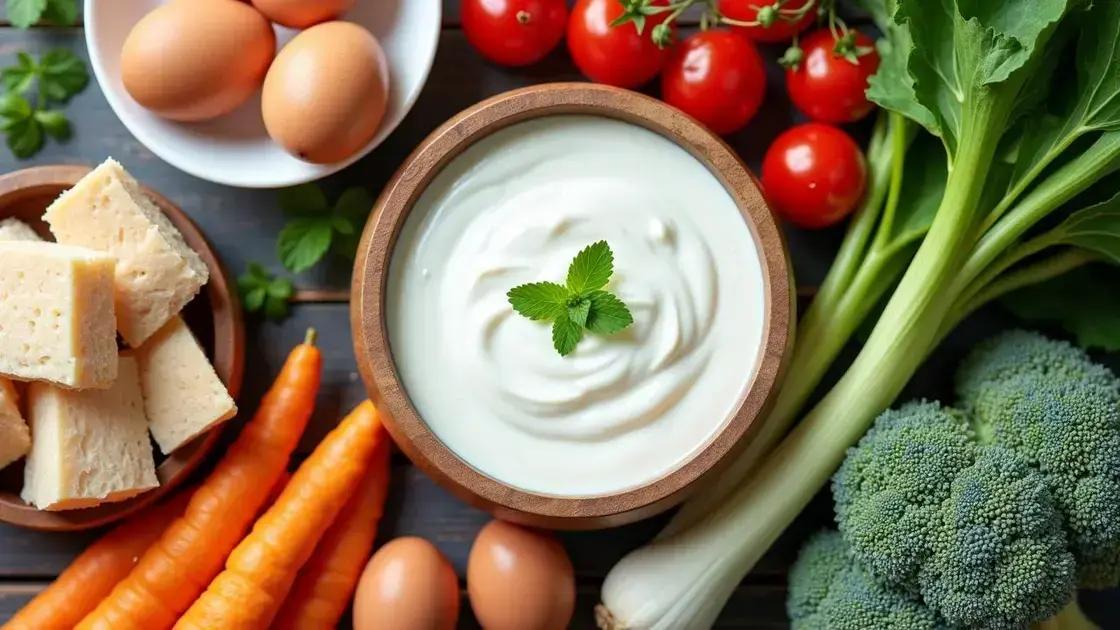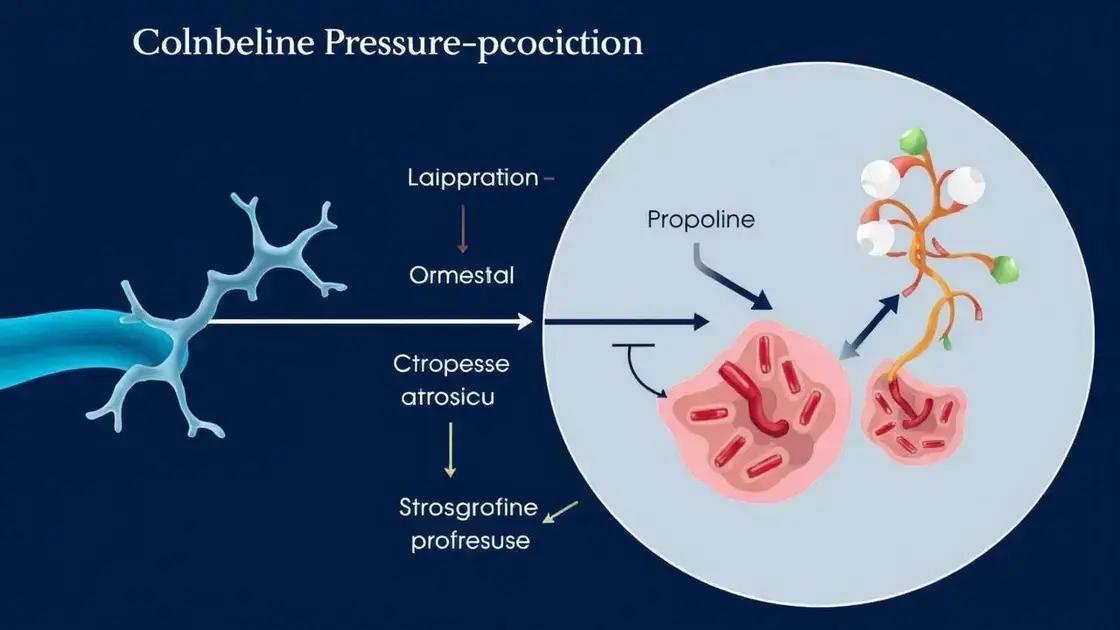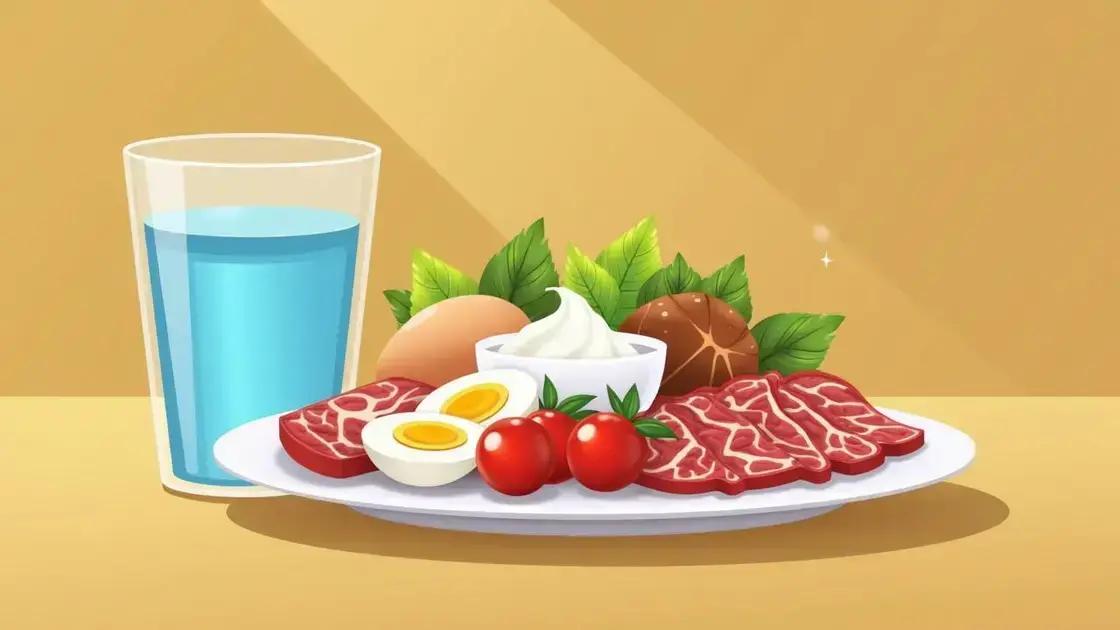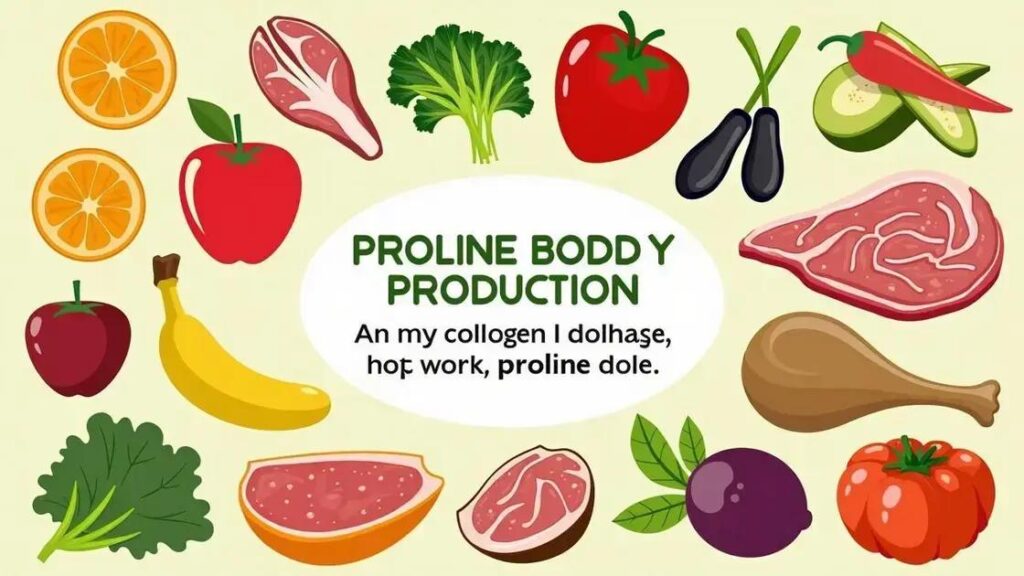Proline-rich foods, such as meats, dairy, eggs, and certain plants, play a crucial role in collagen production, enhancing skin elasticity and joint health. Incorporating these foods into your diet supports your body’s natural collagen synthesis, promoting overall well-being.
Proline-rich foods hold a key role in collagen production, which is crucial for maintaining skin elasticity and joint health. As we age, our body’s natural collagen levels decline, making it important to focus on dietary sources that can help replenish this vital protein. In this article, we will delve into the types of proline-rich foods available, their impact on collagen synthesis, and how you can easily integrate them into your daily meals.
What are Proline-Rich Foods?

Proline-rich foods are an important part of the diet as they provide a significant source of the amino acid proline, which is vital for collagen production. Collagen is a protein that helps keep our skin youthful and our joints healthy. Foods rich in proline include:
- Animal products: Such as chicken, beef, pork, and fish. These meats are excellent sources of proline and other amino acids that are essential for collagen synthesis.
- Dairy products: Cheese, yogurt, and milk are also rich in proline. Incorporating these into your diet can enhance both your protein intake and collagen levels.
- Eggs: Eggs contain proline and other critical amino acids, making them a nutritious choice for boosting collagen production.
- Plant sources: Certain plant-based foods like beans and legumes, nuts, seeds, and some grains provide proline as well. For example, soy products like tofu and tempeh can be good sources for those following a vegetarian or vegan diet.
Including a variety of these proline-rich foods in your meals can help support your body’s natural collagen production and overall health.
How Proline Affects Collagen Production

Proline plays a crucial role in collagen production within the body. When we consume proline-rich foods, our body uses this amino acid to help create collagen fibers. Collagen is the most abundant protein in our bodies and is essential for maintaining the structure and elasticity of our skin, cartilage, and other connective tissues.
The process of collagen formation starts with the conversion of proline into hydroxyproline. This step is necessary because hydroxyproline helps stabilize collagen’s triple-helix structure, which is key to its strength and function. Therefore, having adequate proline in our diet supports not only collagen synthesis but also the structural integrity of tissues.
Moreover, proline also assists in the overall healing process. When the body experiences injuries, collagen is critical for repairing tissues. A diet rich in proline can help accelerate this healing, making proline an important nutrient for recovery from wounds and skin damage.
Studies suggest that adequate levels of proline and collagen can lead to healthier skin by keeping it firm and reducing the appearance of wrinkles. Hence, understanding how proline affects collagen production can emphasize the importance of including proline-rich foods in our meals for better skin and joint health.
Benefits of Collagen for Skin and Joints

Collagen offers numerous benefits for both skin and joints, making it a vital protein for overall health. One of the most significant advantages of collagen is its ability to enhance skin elasticity. As we age, natural collagen production decreases, leading to sagging skin and wrinkles. Consuming collagen through diet or supplements can help restore skin structure, keeping it firm and youthful.
Additionally, collagen improves skin hydration. Studies show that collagen can promote water retention in the skin, resulting in a more hydrated and plump appearance. This hydration can also reduce dryness and the visibility of fine lines.
For joints, collagen is essential for maintaining their integrity. It acts as a cushion, helping to prevent joint pain and stiffness, especially in individuals suffering from arthritis or age-related joint issues. By fortifying the cartilage that protects joints, collagen can enhance mobility and comfort during physical activities.
Moreover, collagen supports the healing process after injuries. It plays a critical role in repairing tissues, which can speed up recovery times for both skin and joint injuries.
Overall, the benefits of collagen for skin and joints highlight the importance of incorporating proline-rich foods into your diet, allowing for enhanced collagen production and longevity in our bodily functions.
Incorporating Proline-Rich Foods into Your Diet

Incorporating proline-rich foods into your diet is a simple and effective way to promote collagen production. Here are some easy tips to help you get started:
- Start with Breakfast: Include eggs in your morning meal. They are not only rich in proline but also provide other essential nutrients. Try scrambled eggs, omelets, or even boiled eggs.
- Add Dairy: Incorporate yogurt or cottage cheese into your snacks or meals. These dairy products are excellent sources of proline and can be added to smoothies, granola, or eaten on their own.
- Choose Lean Meats: Opt for chicken, turkey, beef, and fish regularly. Grilling, baking, or stir-frying these meats can help you easily include them in your meals while preserving their nutrients.
- Explore Plant-Based Options: For those on a plant-based diet, include legumes like lentils and beans. Nuts and seeds, such as almonds and pumpkin seeds, also provide valuable proline.
- Snack Wisely: Choose snacks that include proline-rich foods. A handful of mixed nuts or a yogurt parfait can be both delicious and beneficial.
Remember to drink plenty of water throughout the day to keep your skin hydrated and support bodily functions. By adding these foods to your diet, you can help your body produce collagen naturally and promote overall health.
In Summary: The Importance of Proline-Rich Foods
Incorporating proline-rich foods into your diet is essential for boosting collagen production, which plays a vital role in maintaining healthy skin and joints.
As we explored, proline affects collagen synthesis significantly, leading to benefits such as improved skin elasticity and joint health, vital for overall well-being.
By making simple dietary changes and emphasizing foods high in proline, you can support your body’s natural ability to produce collagen, promoting healthier skin and more mobile joints.
Taking these steps towards a diet rich in proline will not only enhance your appearance but also contribute to your long-term health.
FAQ – Frequently Asked Questions About Proline-Rich Foods and Collagen Production
What are proline-rich foods?
Proline-rich foods include animal products like chicken, beef, pork, and fish, as well as dairy products, eggs, and certain plant sources like beans and nuts.
How does proline affect collagen production?
Proline is a crucial amino acid that helps in the synthesis of collagen. It converts into hydroxyproline, which stabilizes collagen’s structure, essential for healthy skin and joints.
What are the benefits of collagen for skin and joints?
Collagen enhances skin elasticity, hydration, and firmness, while also providing cushioning for joints, reducing pain and stiffness, especially in older adults.
How can I incorporate proline-rich foods into my diet?
You can add proline-rich foods by including eggs in breakfast, snacking on yogurt, choosing lean meats for lunch and dinner, and incorporating nuts and legumes into meals.
Is it possible to get enough proline from a plant-based diet?
Yes, while animal products are high in proline, plant-based sources like soy products, beans, and certain seeds can help meet your proline needs.
How much collagen do I need for optimal skin and joint health?
While specific needs can vary, studies indicate that 2.5 to 15 grams of collagen per day may have beneficial effects on skin and joint health.













